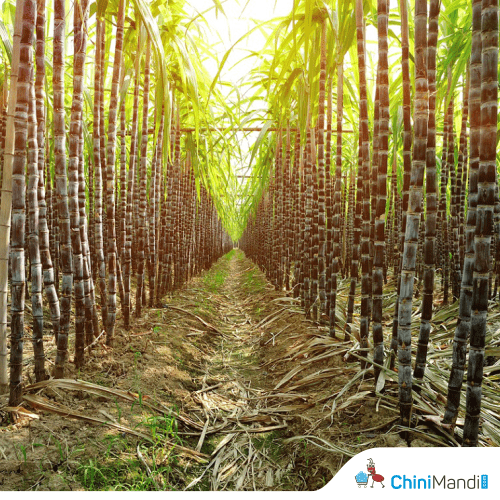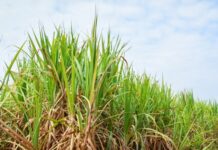Pune: On a warm February afternoon, Mahendra Thorat walks through his sugarcane field, sighting his tallest and healthiest crop in years. The farmer from the Pune district credits his success not to new seeds or fertilisers but to artificial intelligence (AI) guiding his farming decisions.
Thorat is one of 1,000 farmers participating in an experiment that could transform sugarcane farming in India. The initiative, developed by the Agriculture Development Trust (ADT) in Baramati in collaboration with Microsoft, aims to boost productivity while conserving water and reducing costs, reported Hindustan Times.
“This AI tool tells me how much water my crop needs, when to spray fertilisers, and even warn me about pests before I can see them,” says Thorat, showing the mobile app on his smartphone. “I’ve cut my water use in half and reduced pesticide use while expecting 40% more yield this season.”
In Navale village near Indapur, farmer Bapu Avhad is seeing similar benefits. “AI is new to us, but it’s beneficial. It alerts me when to spray pesticides based on wind speed and weather. It also gives updates on soil conditions and water requirements,” he says. However, he points out a limitation: “It doesn’t provide information on nitrogen, phosphorus, and potassium (NPK) levels. If that is included, it will be even more helpful. My crop is the best it has ever been, and now some of my friends want to try this technology for their vineyards.”
Amit Navale from Shrigonda taluka in Ahmednagar district started using AI in January and has already seen positive results. “We have a WhatsApp group for AI farmers, and everyone is happy with it. AI helps us save water, reduce costs, and improve crop quality. I believe it will help us manage unpredictable weather,” he says.
Sugarcane farming in Maharashtra has long been both a livelihood and a challenge. While essential to the economy and supporting over 150 sugar mills, the crop demands high water usage and is vulnerable to pests and diseases. Erratic weather and rising costs have made farming increasingly difficult.
ADT saw an opportunity to bring AI into farming. In partnership with Microsoft, the organisation launched a pilot project that combined AI-driven insights with traditional methods.
Tushar Jadhav, who leads the AI initiative at ADT, explains how the technology was tested on two plots—one with AI assistance and the other with traditional techniques. “The AI-driven plot produced 40% more sugarcane per acre while using half the water and much less fertiliser,” Jadhav says.
The AI system collects data from satellite imagery, weather forecasts, soil sensors, and farm inputs to provide farmers with customised recommendations. Processed through Microsoft’s Azure Data Manager for Agriculture, the technology allows farmers to monitor real-time conditions on their farms with just a few clicks. By optimising irrigation schedules and detecting early signs of pests and diseases, AI helps farmers take preventive action rather than relying on excessive pesticide use.
“For example, AI detected a fungal infection on Thorat’s farm before it was visible to the naked eye. At first, the farm workers didn’t believe the warning, but within days, the infection spread. Without AI, the losses could have been severe,” Jadhav recalls.
Encouraged by the success of the pilot project, ADT has now expanded AI adoption to 1,000 farmers in the Pune district. Participants receive access to weather stations, soil testing devices, and mobile applications that provide tailored insights.
ADT’s CEO, Nilesh Nalawade, believes AI-driven farming is here to stay. “This is not a concept for the future—it is happening now. Farmers are seeing real financial benefits, and that’s what will drive adoption,” he says.
However, the technology comes at a price. Farmers must pay ₹10,000 annually for AI access, a significant investment for small-scale cultivators. Yet, many believe the savings on water, fertilisers, and pesticides make it worthwhile.
Farmers are also considering using AI for other crops. Thorat, for instance, plans to apply the technology to his banana plantation next year. “If it works for bananas like it does for sugarcane, I won’t look back. Farming is evolving, and I want to stay ahead,” he says.
The success of AI in sugarcane farming has caught the attention of policymakers. Former Union Agriculture Minister Sharad Pawar recently urged the Vasant Dada Sugar Institute to promote AI adoption across Maharashtra’s sugarcane belt. Deputy Chief Minister Ajit Pawar has also emphasised the need to integrate AI into agriculture to address climate change and resource challenges.
While AI may not solve every farming challenge, those using it believe it offers a more sustainable path forward. As climate change intensifies and water resources shrink, data-driven farming may become the key to ensuring stable and profitable harvests.












